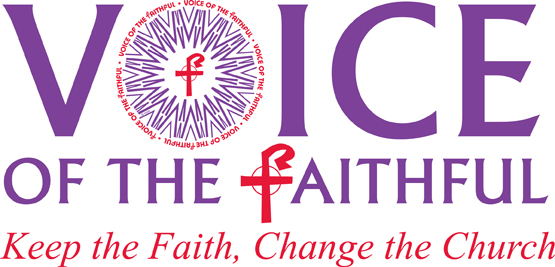Voice of the Faithful marks its 20th year in 2022 and is offering a series of articles about who we are and what we do. The following is by Margaret Roylance, VOTF trustee and vice president, and chair of VOTF’s Finance Working Group.
March 1, 2022
As Mary Pat Fox described last month, Voice of the Faithful grew at an astonishing rate in the first few months. Looking back, though, the amazing thing is the speed and clarity with which the mission and goals of the organization were discerned. Centered in prayer, speaking boldly and listening attentively to one another, we were journeying together in faith 20 years before Pope Francis’ Synod. That convinces me that VOTF was and still is a movement of the Spirit.
Founder Jim Muller’s motto was “Keep the Faith – Change the Church.” When our critics asked us what that meant, we said we respected the role of the hierarchy, but all the people of God must be involved in discerning where the Spirit is leading the Church. Cardinal George of Chicago responded that “Keep the Faith, Change the Church” was problematic because any change in the Church will, “unless most carefully thought out,” change the faith. He cited the example of Martin Luther. We were under suspicion as heretics by association with the leader of the Protestant Revolt! How could we keep the faith we loved, but change the Church whose leaders had covered up such tragic crimes?
Responding to our baptismal call we submitted our needs for new leadership to the Vatican, starting with a replacement for Cardinal Law in Boston. We studied Canon Law and Church governance structures and asked the Church to follow its own promises to involve the laity in governance and guidance through membership on Diocesan Finance Councils. Canon Law requires one in every diocese. We volunteered for parish pastoral and finance councils. We did not fade away as many bishops believed we would. We were in it for the long haul.
Recognizing that the abuse crisis was enabled by a pervasive culture of financial secrecy in the Church, a dedicated group of volunteers collaborated for five years to develop a fair, fact-based, reliable and repeatable system to measure financial transparency on diocesan websites. This Finance Working Group realized that all of us, even bishops, care about grades. We published our first diocesan financial transparency report in 2017 with financial scores for every diocese in the U.S. Conference of Catholic Bishops.
The average score was 60% in 2017. In 2021, our fifth annual report showed an average diocesan score of 69%, and five dioceses received perfect scores of 100%. Thirty-eight dioceses received scores in the 90s. Diocesan leaders have realized that receiving a good transparency score from an independent organization like VOTF can help convince their members to provide financial support for their programs.
We are no longer called heretics, at least not by most Catholic bishops. Bishops have thanked us for our efforts and a steady stream of CFOs has asked us for assistance in increasing their transparency scores. Genuine financial transparency is on the rise in the U.S. Church. We will continue the yearly transparency reviews, and are using the same approach to look at child protection policies on diocesan websites. We have found that love of the Church, prayer, hard work, and persistence can produce results that were unimaginable in 2002, and we are just getting started!

